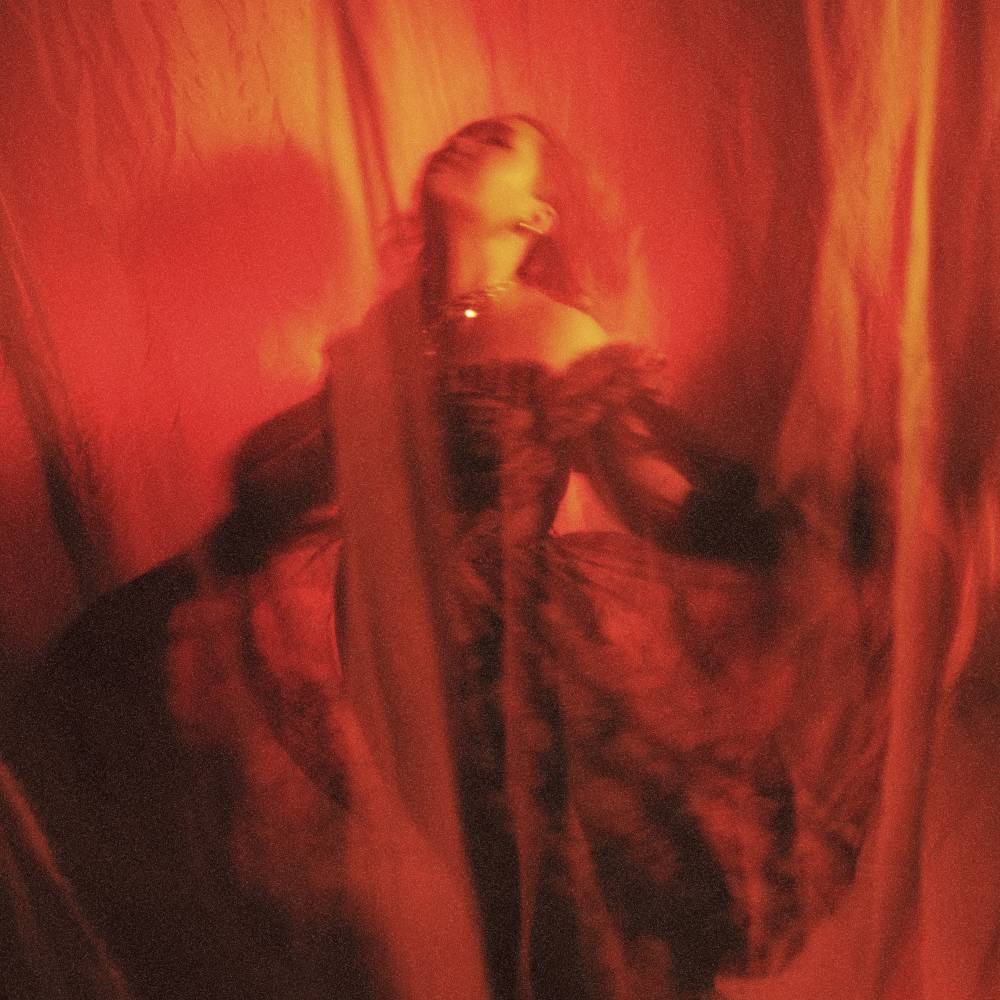Dwta’s steady smolder

Last year, before taking the stage at a show in Lucban, Quezon, singer-songwriter Dwta began to second-guess herself. There she was, about to sing songs in her native Bikol—far from her “home court,” in a place where hardly anyone spoke her language.
“I thought, ‘Maybe we should just do covers. People may not understand the songs, or they may not even come,’” she says in a recent interview with Lifestyle.
So imagine her surprise, she said, when she arrived at the venue to find a packed crowd. And when she closed her set with her biggest hit yet, “Padaba Taka”—or “I love you”—the rapt audience erupted in a rousing chorus, singing every foreign word right back at her.
Dwta always knew that music has the power to break boundaries. That night, she watched it unfold in real time. Her eyes began to water—“or was it sweat?” It was hot; she couldn’t tell at first. “But then I was just crying! I had goosebumps,” she says. “I was away from home, but people sang along. They may not have understood every word, but I knew they felt it.”
Core memory
For the artist, whose real name is Jhasmine Villanueva, that performance will always be “a core memory”—a moment “so fulfilling as a Bicolana.” It’s this same sense of pride she feels whenever she comes across cover videos of “Padaba Taka” recorded by non-Bikol singers, or hears her music used as background in TikTok videos.
“Listening to some of them, you would think they were actually Bicolano. I really didn’t think people would like it,” Dwta says of the unexpected hit, which won Best Regional Recording at the 2023 Awit Awards and has amassed more than 36 million streams on Spotify since its release in 2022. “It’s an amazing feeling.”
While her idea of success doesn’t live or die by the numbers, the single’s popularity was a long-overdue affirmation of her decision, made many years ago, to write—although not exclusively—in her native tongue. On a personal level, putting ink to paper in the language most intimate to her felt like the most natural thing.

But there’s also joy, and maybe even a bit of relief, in knowing that there’s space for her work—and for regional languages, for that matter—in the grander scheme of OPM. “Putting out Bikol songs can help promote my roots and culture,” says Dwta, whose other Bikol songs include “Santigwar,” inspired by faith healing; “Panganoron,” rooted in the legend of the Daragang Magayon; and the melancholic song of longing, “An Satuyang Istorya.”
In her lyrics, Dwta uses familiar yet heartwarming phrases, like “Mari na” or “Halika na”—invitations not only into her musical world but also into the land that nurtured it.
In her music videos, specifically for “Padaba Taka,” she showcases the beauty of her hometown, with scenes shot around picturesque spots in Albay—the Mayon lava wall, Mount Masaraga, and more. The music video for “Santigwar” is set on a campsite, also in Mount Masaraga, where they put up a cottage named after the song. “People tell me they want to visit Bicol after seeing the videos,” Dwta says.
A portrayal of anger
Her commitment to honoring her heritage, however, isn’t exclusionary. She embraces writing in other languages too, like Tagalog, which goes without saying for any artist seeking to build a professional music career and reach a wider audience in the Philippines. She also dabbles in English, as in her latest single, “Nasusunog (Pants on Fire).”
And no, it’s not a reference to that long-held stereotype of Bicolanos being fiery and uragon (brave)—or their love for all things spicy. Sure, Dwta does enjoy her snacks with a kick of heat (hello, Cheezy Red), but she’s actually quite “a softie,” she admits.
The song is actually a portrayal of anger—not unlike the explosiveness of Mayon Volcano, but the kind that simmers beneath the surface. Weaving confessional introspection with alt-rock instrumentation, “Nasusunog” was penned by Dwta together with Tiana Kocher, Ashley Mehta, and Martin Estrada in a songwriting-turned-trauma-dumping session of sorts.

There’s no single impetus behind the track—no major catalyst, nor a collection of little hurts swelling into unbridled rage. Just a group of musicians picking at their minds, brushing the canvas with strokes of lies and manipulation until they paint a big, red picture: deceit burning through trust. Hence, the playful use of the children’s taunt, “Liar, liar, pants on fire.” “All my songs are mostly about love and sadness. I wanted to try something different, something bolder,” she says.
But in expressing the resulting wrath, Dwta resists natural impulse, letting it burn not in a raze but in a slow smolder—exactly how she navigates that emotion in real life.
“I don’t confront anger head-on. I take a step back even if deep inside I want to explode. I take a step back and think about what’s happening because I might end up saying things I might regret later on,” she points out. “Once I’m ready, I open up. And of course, it’s okay to stand up for yourself when you know you’re in the right.”
Creative fire
The cover art depicts Dwta—her arms outstretched as if in surrender—amid cascading fabrics that radiate a fiery glow. “From butterfly to phoenix!” she says, laughing. “The diwata has evolved.”
The sound is a detour, not a full departure, from her dreamy folk pop signature. The electric guitar plays a prominent role, with further emphasis on minor chord progressions that create darker, moodier, more introspective tones. Still, the essence of her music remains—the percussion, the flourish of strings, the twang of the kubing (Philippine jaw harp).
“As an artist, evolution is inevitable. People’s tastes also evolve, so you have to adjust,” Dwta says. “But at the same time, I don’t want to stray too far from who I am and risk alienating my fans.”
And certainly not too far from her hope of bringing Bikol songs into mainstream consciousness. So while her yearning for change and exploration is the kindling that sparks her creative fire, it’s her roots that serve as the ember, sustaining it even as the blaze quiets.
“Something just clicks when I write in Bikol. It feels pure and sincere,” she says. “The language is very close to me. Kaya ayokong iwan.”





















